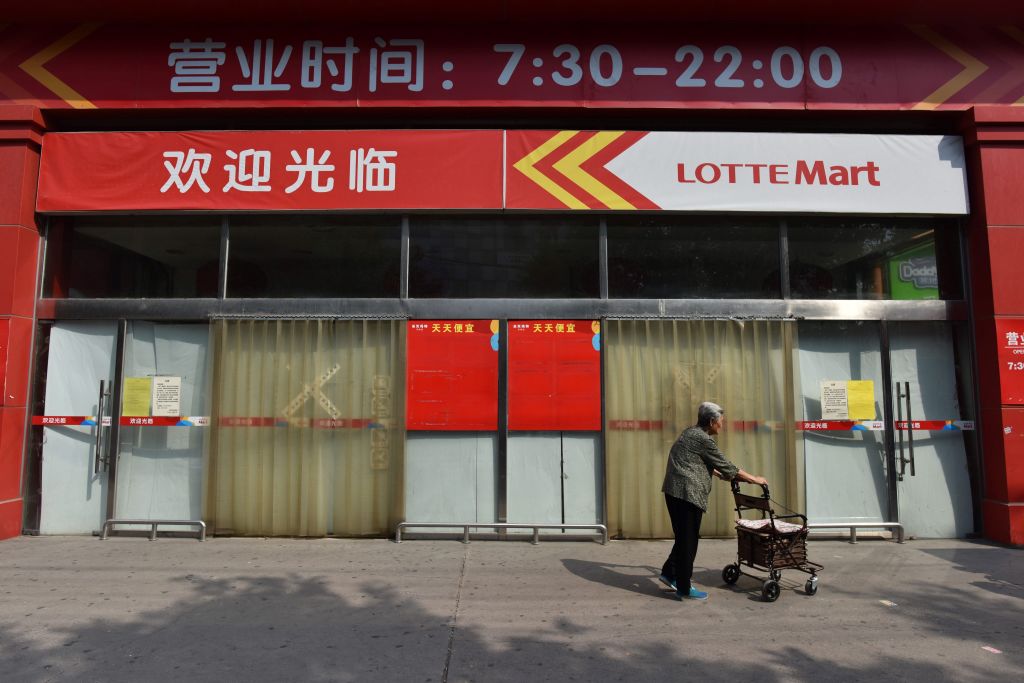Pain is inevitable when you offend someone who is overwhelmingly stronger and not averse to asserting its superiority over you.
Perhaps no other country would understand this as much as South Korea in 2017.
From the boycotting of its products, to the limiting of Chinese tourists to the country and the crackdown on Korean pop culture, South Korea is arguably the country that felt the brunt of China's wrath economically in 2017.
The beginning of South Korea's pain
The trouble for South Korea started when it decided to install a US-made anti-missile system known as Terminal High Altitude Area Defence (THAAD) last July.
Beijing considers THAAD a threat to its national security, and is concerned that the United States (US) might be able to spy on its territory using THAAD's radar system.
Since then, China has unleashed a series of economic retaliations on the latter in order to pressure the country into ditching THAAD.
Chinese repercussions: A timeline
Here's a timeline of Chinese repercussions against South Korea in 2017:
-
Feb. 2017
Korea conglomerate Lotte agreed to provide one of its golf courses southeast of Seoul for the deployment of THAAD.
The decision was made despite China's threats of 'severe consequences'.
China fined Lotte over its advertising practices, and shut down 99 hypermarkets in the country for fire-code violations.
-
March 2017
Seoul refused to heed Beijing's call to halt the deployment of THAAD in March.
Beijing banned agents from selling group tours to South Korea.
Online video sites were banned from buying rights to new South Korean shows.
-
May 2017
Moon Jae-In took office as South Korea's new President. He sent an envoy to Beijing to meet with Chinese President Xi Jinping.
China stopped blocking Lotte's website upon his return.
-
June 2017
Moon decided to halt the deployment of THAAD, in a move that appears to be a concession to Chinese objections.
He agreed that the two systems that had already arrived would stay.
-
Oct. 2017
The two countries agreed to move beyond the THAAD dispute, and to normalise relations in order to focus on their joint desire to denuclearise the Korean Peninsula.
Lotte confirmed that it hopes to sell its Chinese hypermarkets by the end of 2017 even though it's been trying to crack the Chinese market since 2008.
-
Nov. 2017
Chinese agencies resumed package tours to South Korea, but executives from tour agencies said that they were told to keep Lotte Group's businesses at arm's length.
-
Dec. 2017
Moon made his first trip to China as President.
He promised to respect China's missile-shield concerns and pursue a "balanced diplomacy" with Beijing and Washington.
However, there are conflicting reports recently over whether China is again blocking group visas to South Korea.
[related_story]
Economic costs
The THAAD incident is likely to be the most negative factor to hit the Korean economy, which has already been experiencing a slowdown this year.
As Aju Business Daily reported, the economic losses to South Korea over Chinese unofficial retaliation is estimated to be US$7.5 billion, based on a study by Hyundai Research Institute.
The Bank of Korea's forecast points to economic growth rate being lowered by 0.2 percent this year while employment will be reduced by 25,000.
Tourism
Since 2013, China has been the largest source of foreign tourists to South Korea.
However, the number of Chinese tourists visiting South Korea between March to October this year plunged more than 60% from the same period last year since Seoul and Beijing fell out with each other.
The tightening of economic screws on South Korea resulted in the latter taking a $6.8 billion (S$9.1 billion) hit from the drop in tourism alone.
Consumer goods
Lotte Shopping, the conglomerate's retail subsidiary, is expected to lose sales in China totalling more than $885 million (S$1.2 billion) this year.
AmorePacific, South Korea's largest cosmetics company, which derived a third of its revenues from Chinese consumers last year, reported a 58% slump in operating profit in the second quarter of 2017.
Two rival powers and a belligerent neighbour
Some analysts have pointed out that THAAD in South Korea does not pose any threat to China, as the trajectory followed by missiles fired from Chinese missile sites to the US is out of THAAD's range.
South Korea is in an unenviable position. It is caught between two rival powers, while facing a belligerent neighbour up north.
While it counts the cost to its economy, it remains to be seen how long will China keep up the pressure to achieve its own objectives.
Top image via Getty Images
If you like what you read, follow us on Facebook, Instagram, Twitter and Telegram to get the latest updates.
